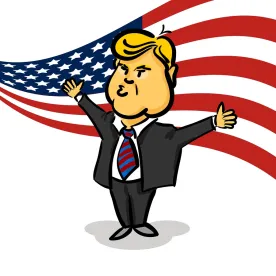On April 18, 2017, President Trump signed the Buy American and Hire American (BAHA) Presidential Executive Order. The mandate is designed to create higher wages and employment rates for U.S. workers by administering and enforcing federal immigration laws. BAHA directs those federal agencies responsible to propose new rules and new guidance.
Of the temporary work visas available, President Trump singled out the H-1B visa category as ripe for reform to ensure H-1B visas are awarded to the most skilled or highest paid foreign workers, and to prevent fraud and abuse. But is such reform needed, and why should financial institutions care?
The H-1B visa category is reserved for those foreign national workers filling specialty occupations. Specialty occupations are defined as those minimally requiring a bachelor’s degree. Employers sponsoring H-1B workers are obligated to pay and treat them as they would U.S. workers or face stiff penalties and debarment from participating in the H-1B program. An annual quota of 85,000 H-1B visas limits the ability of employers to fully utilize the category.
Despite the quota, the H-1B visa remains a critical tool for employers attempting to fill gaps in and complement the U.S. workforce. H-1B workers are highly skilled and educated, with 60% possessing a master’s degree or higher, according to Department of Homeland Security (DHS) U.S. Citizenship & Immigration Services (USCIS) 2017 data. As reflected by public disclosure data available on the Department of Labor’s (DOL) website, investment banks and securities dealers rely upon H-1B workers to fill STEM-related occupations, including, but not limited to, Computer Hardware and Software Engineers, System Analysts and Programmers, Credit Analysts, Database Administrators, Economists, Financial Analysts and Managers, Management and Operations Research Analysts, Mathematicians, Software Developers and Statisticians.
DOL Bureau of Labor Statistics data indicates unemployment in professional and related occupations has dropped from 3.3% as of July 2017 to 2.8 % as of July 2018. These figures support the fact that more than enough work exists to Hire American as well as foreign talent.
As for concerns about fraud in the program, the DHS reported in 2017 that out of 334,104 H-1B petitions filed in 2016, only 253 were revoked or withdrawn as a result of a Fraud Detection and National Security site visit.
Despite these statistics, federal agencies have pressed on with new guidance to make hiring and retaining H-1B workers more challenging. USCIS no longer gives deference to prior petition approvals, so an employer cannot rely on the fact an employee was previously approved when requesting an extension of stay. USCIS will also now deny petitions more readily without first soliciting further evidence. This additional scrutiny and vetting has led to increased processing times.
Nevertheless, the H-1B visa program remains vital to financial institutions’ ability to hire and retain highly skilled talent – talent which supports global competitiveness and relevance. Best positioned employers are those that are deliberate with corporate immigration policies and procedures. Educating human resource professionals, hiring managers and recruiters about U.S. visa law and establishing strategic solutions for attracting and keeping H-1B workers in a tight labor market will afford a crucial edge in staying on top.



 />i
/>i

